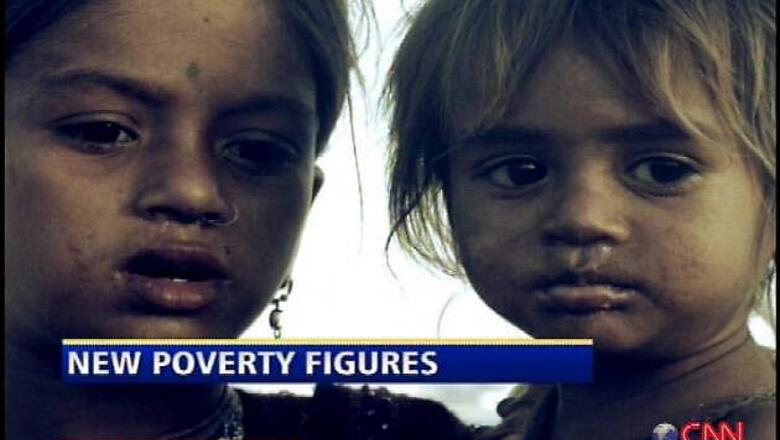
views
Washington: The global economic crisis has slowed the pace of poverty reduction in developing countries but the number of poor in India is falling, says a new report
According to the World Bank Group and International Monetary Fund report, the economic crisis is also hampering progress in several key areas of the Millennium Development Goal (MDGs).
These include those related to hunger, child and maternal health, gender equality, access to clean water, and disease control.
The global economic crisis will continue to affect long-term development prospects well beyond 2015, says the Global Monitoring Report 2010: The MDGs After the Crisis.
As a result, 53 million more people will remain in extreme poverty by 2015 than otherwise would have, says the report released on Friday ahead of the two-day Bank-Fund meetings over the weekend.
Even so, the report projects that the number of extreme poor could total around 920 million five years from now, marking a significant decline from the 1.8 billion people living in extreme poverty in 1990.
Based on these estimates, the developing world as a whole is still on track to achieve the first MDG of halving extreme income poverty from its 1990 level of 42 per cent by 2015.
In India, the number of such people living on less than $ 1.25 a day is expected to go down from 435 million or 51.3 per cent in 1990 to 295 million or 23.6 per cent by 2015 and 268 million or 20.3 per cent by 2020.
Both the 2008 food price crisis and the financial crisis that hit that year have played a role in exacerbating hunger in the developing world.
The critical MDG target of halving the proportion of people suffering from hunger from 1990 to 2015 appears very unlikely to be met as over a billion people struggle to meet basic food needs, the report says.
"The financial crisis was a severe external shock that hit poor countries hard. Its effects could have been far worse were it not for better policies and institutions in developing countries over the past 15 years," said Murilo Portugal, IMF deputy managing director.
"The crisis in the developing world has a potentially serious impact in everyday life since the margin of safety for so many people is so slim in even the best of times."
Spurred by recent strong performance in emerging economies and the recovery of global trade, GDP growth in developing countries is projected to accelerate to 6.3 per cent in 2010, up from 2.4 per cent in 2009, according to new IMF projections contained in the report.
Global output, meanwhile, is projected to increase to 4.2 per cent this year, reversing a decline of 0.6 per cent in 2009. But the recovery is still fragile, with implications for the MDGs.
"While the MDGs are still within reach in certain regions and countries, we know from past crises that human progress - whether in terms of income, nutrition, health or education - tends to decline sharply in bad times, while recovery in good times takes much longer," said Justin Yifu Lin, World Bank Chief Economist.















Comments
0 comment